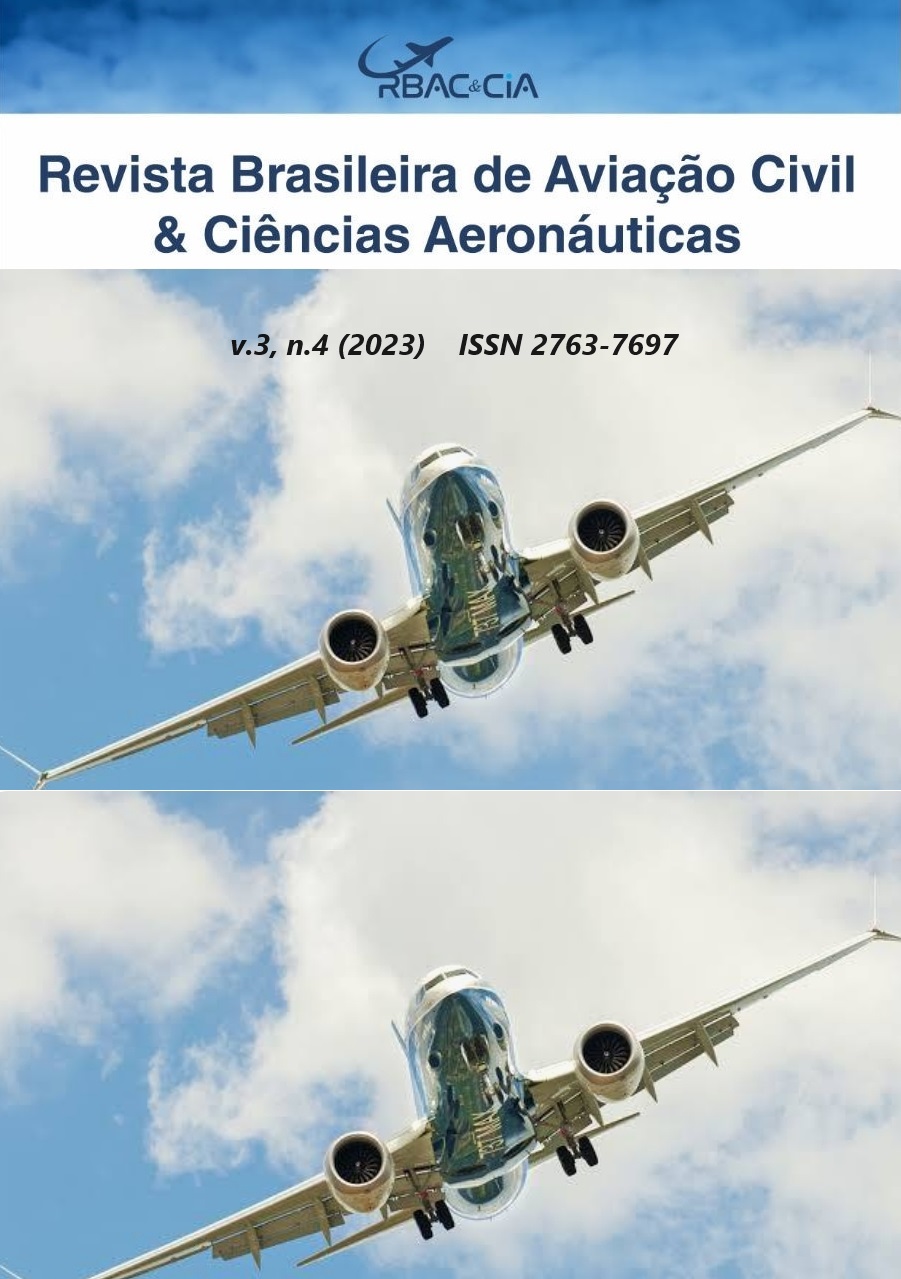PROPOSTA DE CRIAÇÃO DE SISTEMA DE CONTROLE DE JORNADAS DE TRABALHO DOS PILOTOS DA AVIAÇÃO EXECUTIVA PROPOSAL FOR THE CREATION OF A SYSTEM TO CONTROL WORKING HOURS OF EXECUTIVE AVIATION PILOTS
Conteúdo do artigo principal
Resumo
O presente estudo explora a hipótese da carência de fiscalização na aviação executiva com relação à jornada de trabalho dos pilotos, estabelecida na lei 13.475/2018, conhecida como Lei do Aeronauta, somada aos demais regulamentos e resoluções publicados pela Agência Nacional de Aviação Civil (ANAC) e Departamento de Controle de Espaço Aéreo (DECEA) que se aplicam ao objeto do estudo. Trata-se de exploratória, que buscou esclarecer as questões de forma bibliográfica e documental, com base na legislação brasileira, regulamentos e demais resoluções aplicáveis ao objeto do estudo. Assim sendo, objetiva-se averiguar o seu alcance de cobertura e com uma pesquisa aplicada sobre a efetividade dos procedimentos padrões atualmente utilizados na fiscalização da aviação executiva, observou-se uma ausência de controle sobre os limites da jornada de trabalho dos pilotos que atum neste segmento, havendo somente a previsão de fiscalização direcionada à documentações dos pilotos e aeronaves, deixando claro a necessidade de implementação de medidas efetivas que visem controlar a jornada de trabalho da tripulação, a fim de se mitigar os riscos da fadiga humana, tema observado em recentes artigos e estudos publicados que apontam a fadiga como fator contribuinte de acidentes e incidentes aeronáuticos. Em suma, constatou-se, até o momento, que o controle de jornada possui falhas em sua execução e fiscalização por parte dos órgãos regulares nacionais. Por sua vez, buscou-se ao final sugerir medidas complementares e cooperativas aos órgãos reguladores, além de se acrescentar uma nova função ao sistema de apresentação de plano de voo. Portanto, com o aprimoramento do sistema de recepção de planos de voo, surge a possibilidade de criação de uma funcionalidade de controle da jornada de trabalho do piloto de forma mais eficaz quando comparado aos meios de fiscalização atualmente empregados.
ABSTRACT
The present study explores the hypothesis of a lack of supervision in executive aviation regarding pilots' working hours, established in Law 13.475/2018, known as the Aeronautics Law, combined with other regulations and resolutions published by the National Civil Aviation Agency (ANAC) and the Department of Airspace Control (DECEA) that apply to the subject of the study. It is an exploratory study that sought to clarify the issues based on Brazilian legislation, regulations, and other applicable resolutions through bibliographic and documentary research. Therefore, the objective is to investigate its coverage and, through applied research on the effectiveness of current standard procedures in monitoring executive aviation, an absence of control over pilots' working hour limits in this segment was observed. There is only a provision for inspecting pilots' and aircraft documentation, highlighting the need for the implementation of effective measures to control crew working hours in order to mitigate the risks of human fatigue, a topic observed in recent articles and studies that identify fatigue as a contributing factor to aviation accidents and incidents. In summary, it has been noted thus far that the supervision and enforcement of working hours have flaws on the part of national regulatory bodies. Therefore, at the end, it was sought to suggest complementary and cooperative measures to regulatory bodies, along with adding a new function to the flight plan submission system. Therefore, with the improvement of the flight plan reception system, there is the possibility of creating a more effective pilot working hour control functionality compared to the currently employed means of supervision.
Downloads
Detalhes do artigo

Este trabalho está licenciado sob uma licença Creative Commons Attribution 4.0 International License.
